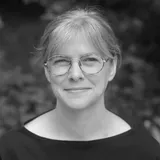Most of us hope we’ll be healthy into our late 80s or early 90s and then die peacefully in our sleep, preferably after a wonderful evening with loved ones. But that’s rarely the way it works out. All too often, our later years are plagued with ill health.
Life expectancy has been steadily increasing throughout the world since 1900, but “those gains have not been matched by equivalent gains in health,” says Armin Garmany, a researcher who studies regenerative medicine at the Mayo Clinic.
People outlive their good health by an average of 9.6 years — 12 years for those who live in the U.S. — according to research by Garmany and Andre Terzig, a pioneer in the field of regenerative medicine, also at Mayo.
Garmany and Terzig were the first to quantify the gap, but the idea has been around for decades. In a paper published in Science in ...















